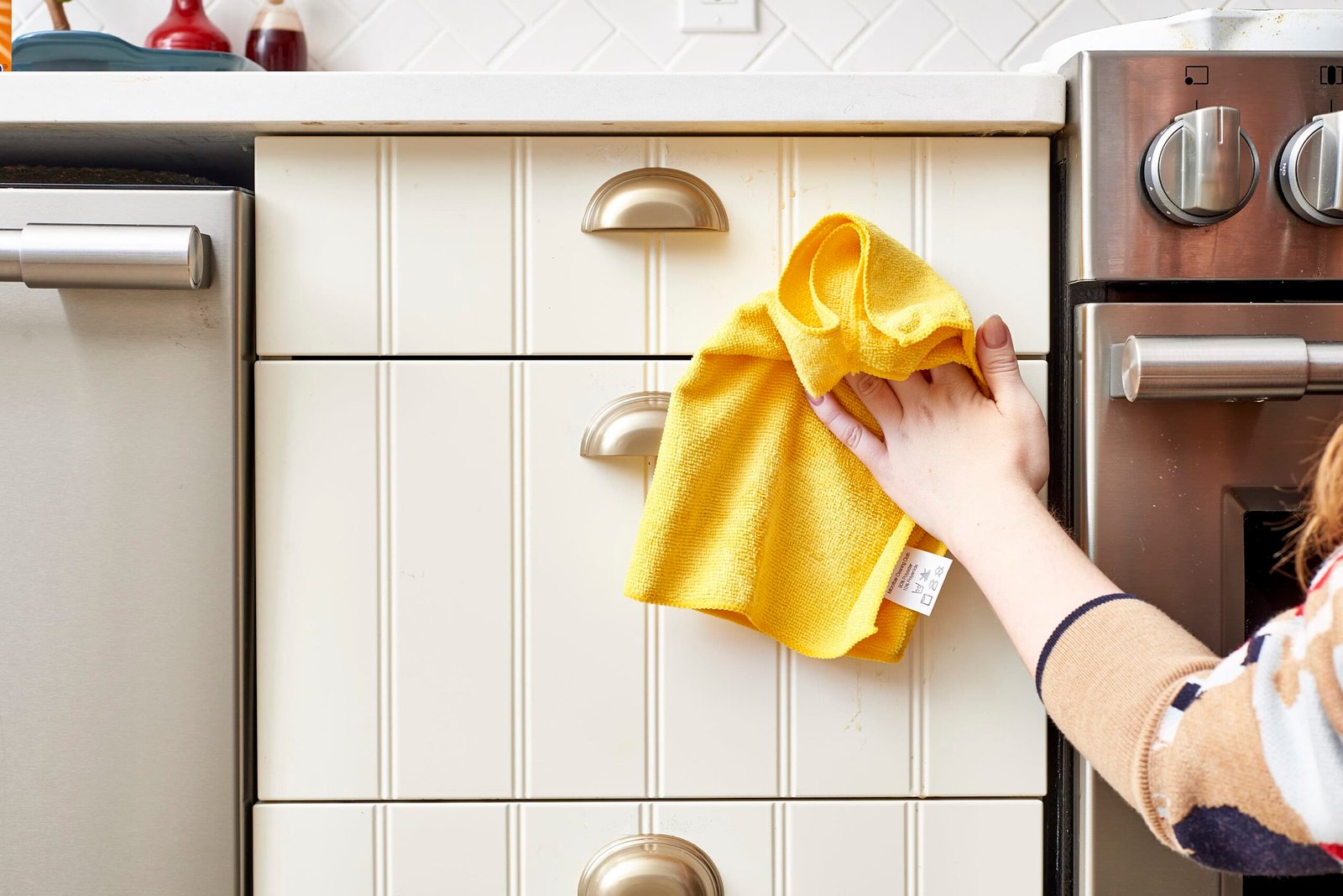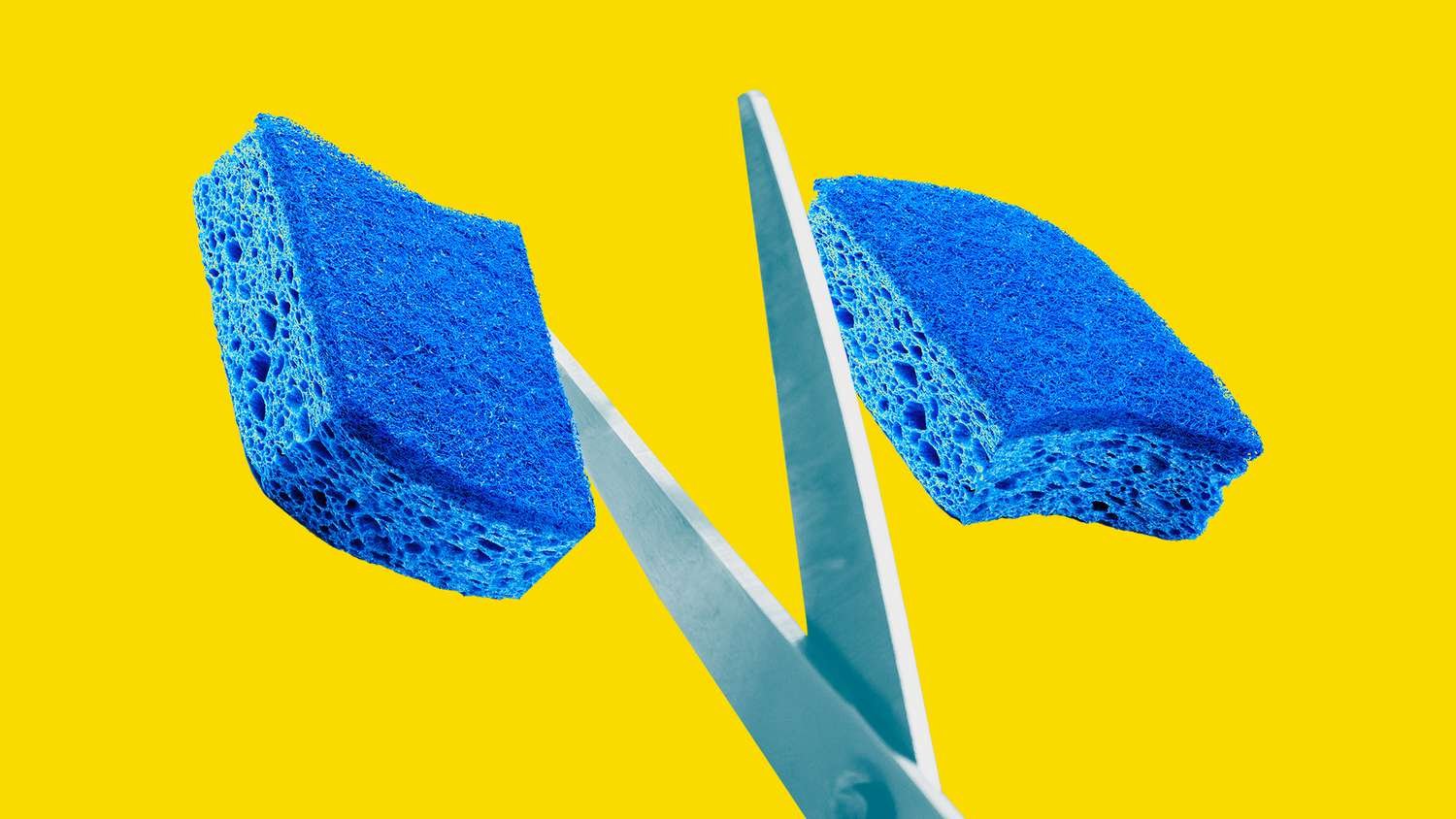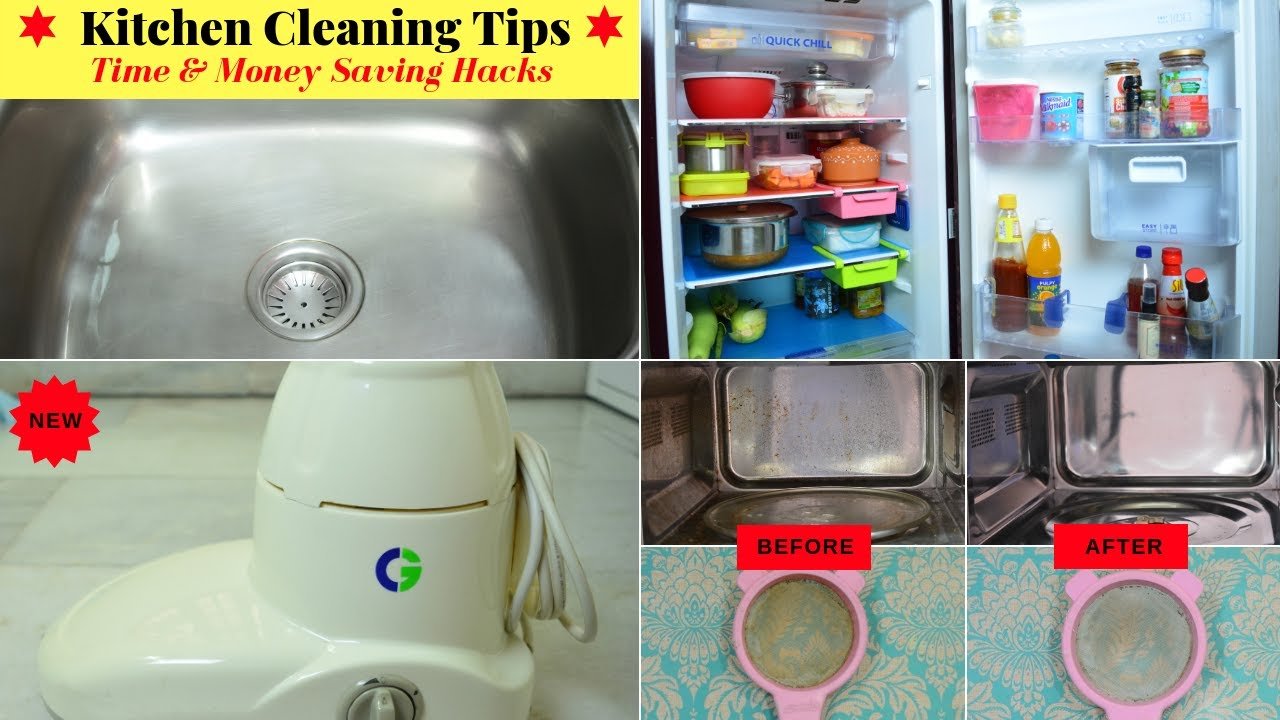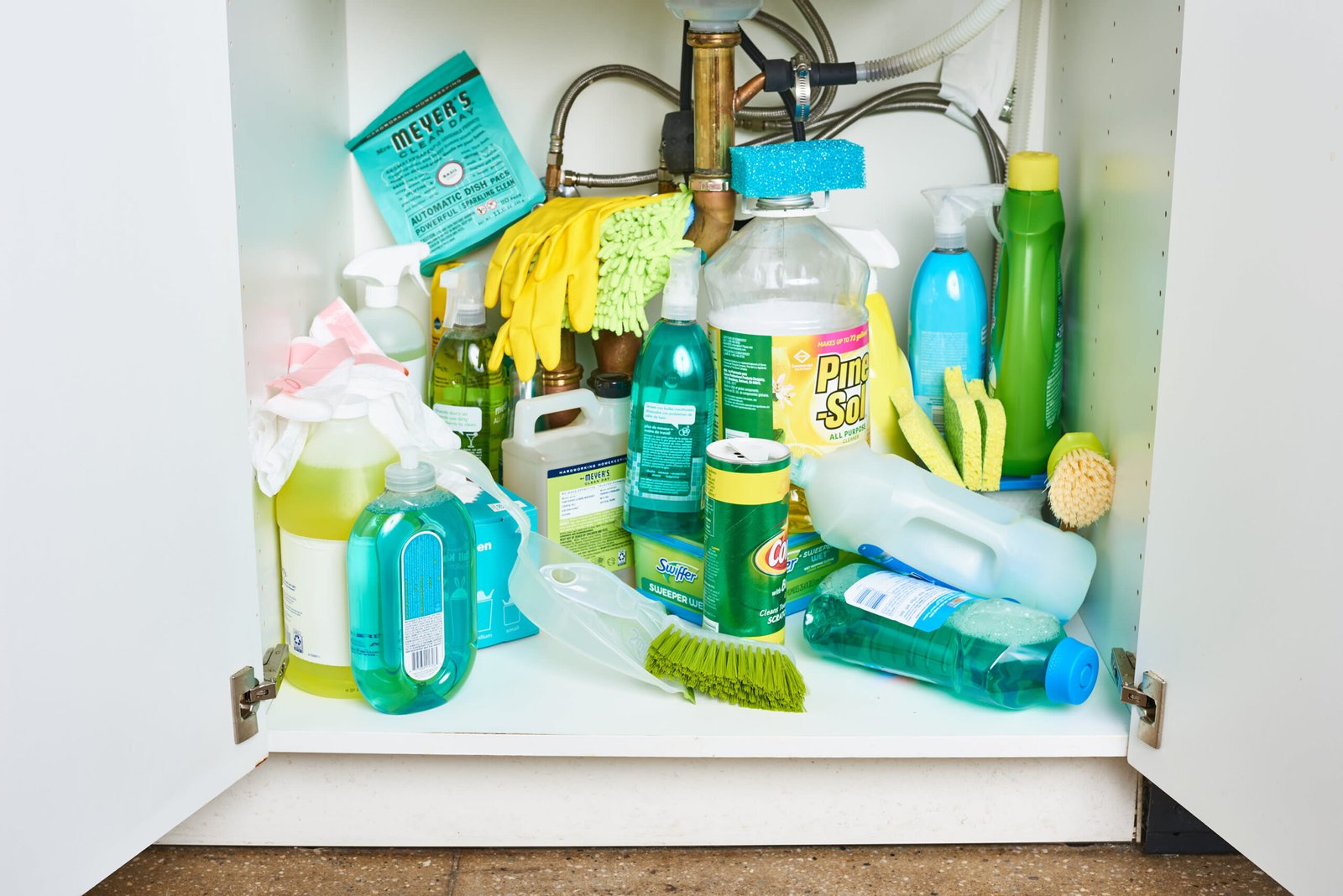Are you tired of spending a fortune on cleaning supplies for your kitchen? Look no further! We’ve got just the solution for you with our new product, “Money-saving tips for kitchen cleaning.” This handy guide is packed with tips, tricks, and simple yet effective methods to keep your kitchen sparkling clean, all while saving you money. Say goodbye to overspending on expensive products and say hello to a cleaner, tastier kitchen!
Money-saving tips for kitchen cleaning
Keeping your kitchen clean and tidy is not only essential for maintaining a healthy and safe environment, but it can also contribute to a more pleasant cooking experience. However, purchasing expensive cleaning products can quickly add up and strain your budget. Fear not, though, because we have compiled a list of money-saving tips for kitchen cleaning that will help you keep your wallet happy while maintaining a sparkling and fresh kitchen. From using homemade cleaning solutions to repurposing everyday items, these tips are both practical and economical.

This image is property of cdn.apartmenttherapy.info.
1. Use homemade cleaning solutions
1.1. Create an all-purpose cleaner
Why spend a fortune on store-bought all-purpose cleaners when you can easily make your own? All you need is a spray bottle, water, vinegar, and a few drops of your favorite essential oil for a pleasant scent. Combine equal parts water and vinegar in the spray bottle and add the essential oil. Shake well before each use, and voila – you have a budget-friendly all-purpose cleaner that is effective on a variety of kitchen surfaces.
1.2. Make your own kitchen degreaser
Grease buildup is a common challenge in kitchens, but you don’t have to rely on expensive degreasers to tackle this problem. Mix equal parts of water and dish soap in a spray bottle, and spray the solution onto greasy surfaces. Let it sit for a few minutes, then wipe clean with a damp cloth or sponge. This homemade kitchen degreaser will effectively cut through the grease without breaking the bank.
1.3. Prepare a natural oven cleaner
Cleaning your oven doesn’t have to involve harsh chemicals and high-priced oven cleaners. Create a natural and budget-friendly oven cleaner by mixing baking soda with water to form a thick paste. Apply the paste to the interior of your oven, avoiding the heating elements, and let it sit overnight. The next day, use a damp cloth or sponge to wipe away the paste, along with the dirt and grime it absorbed. Your oven will be left sparkling clean without the hefty price tag.
1.4. DIY stainless steel cleaner
Stainless steel appliances can add a touch of elegance to your kitchen, but they require regular cleaning to maintain their shine. Instead of purchasing expensive stainless steel cleaners, create your own at home. Mix equal parts white vinegar and water in a spray bottle, and spritz the solution onto a microfiber cloth. Gently wipe the stainless steel surfaces in your kitchen, following the grain of the metal, and watch as the fingerprints and smudges disappear, leaving behind a streak-free shine.
2. Buy cleaning supplies in bulk
2.1. Analyze your cleaning supply needs
Before heading out to buy cleaning supplies, take a moment to assess your needs. Make a list of essential cleaning products that you regularly use in your kitchen. This will help you avoid impulse purchases and ensure that you only buy what you need, saving you money in the long run.
2.2. Compare prices and quantities
When buying cleaning supplies in bulk, it’s important to compare prices and quantities to find the best deal. Take the time to browse different stores or check online for competitive prices. Consider the cost per unit to determine the most cost-effective option and make sure to take advantage of any sales or discounts available.
2.3. Consider joining a warehouse club
Warehouse clubs like Costco or Sam’s Club offer bulk purchasing options at discounted prices. By becoming a member of one of these clubs, you can save money on cleaning supplies and other household items. Just make sure to compare prices with regular stores to ensure that joining a warehouse club is worth the membership fee for your specific needs.

This image is property of www.eatingwell.com.
3. Repurpose everyday items for cleaning
3.1. Utilize lemon or citrus peels
Before throwing away lemon or citrus peels, consider repurposing them for cleaning. Citrus peels have natural cleaning properties and can be used to freshen up your kitchen. Place a few citrus peels in a jar, cover them with white vinegar, and let the mixture steep for a few weeks. Once infused, strain the mixture and dilute with water to create a natural and refreshing all-purpose cleaner. This simple and cost-effective solution can be used to wipe down countertops, clean floors, and remove stains.
3.2. Use newspaper for streak-free windows
Achieving streak-free windows doesn’t have to involve expensive window cleaners. Instead, grab some newspaper from your recycling bin. Spray a vinegar and water solution onto the window, then use crumpled newspaper to wipe away the dirt and grime. The ink in the newspaper helps to remove streaks and leaves your windows sparkling clean without the need for costly window cleaning products.
3.3. Employ old toothbrushes for tight spots
Cleaning those hard-to-reach and tight spots in your kitchen can be a challenge, but don’t fret – old toothbrushes can come to the rescue. Instead of buying specialized brushes, repurpose old toothbrushes for cleaning grout, scrubbing around faucets, or reaching into crevices. They are a perfect tool for getting into small and intricate areas without spending a dime.
3.4. Transform socks into cleaning mitts
Do you have mismatched socks lying around? Instead of throwing them away, repurpose them into cleaning mitts. Simply slip a sock over your hand, and you have an instant cleaning tool. Socks make excellent dusting mitts or can be used for wiping down surfaces. You can even add a few drops of your favorite essential oil to the sock for a pleasant scent while you clean.
3.5. Reuse spray bottles
Instead of buying new spray bottles every time you need a cleaning solution, reuse the ones you already have. After using up a commercial cleaning product, thoroughly wash out the bottle and remove any labels. Fill it with your homemade cleaning solution or diluted vinegar, and you have a ready-to-use spray bottle at no extra cost.
4. Opt for reusable cleaning tools
4.1. Choose washable microfiber mops
Traditional mops can be expensive, and disposable mop heads can add up in cost over time. Opt for washable microfiber mops instead. These mops are more affordable in the long run, as you can simply toss the mop heads in the washing machine after use, eliminating the need to buy replacement heads frequently.
4.2. Invest in reusable cleaning gloves
Cleaning gloves can help protect your hands from harsh cleaning chemicals, but instead of buying disposable gloves, invest in a pair of reusable gloves. Look for gloves made from durable and long-lasting materials, such as neoprene or latex. By using reusable gloves, you’ll not only save money but also reduce waste.
4.3. Utilize washable dusters
Dusting your kitchen regularly is an important part of maintaining a clean environment, but disposable dusting wipes and dusters can quickly become costly. Switch to washable dusters made from microfiber or cotton. These dusters can be washed and reused multiple times, allowing you to save money and reduce waste.

This image is property of i.ytimg.com.
5. Make use of vinegar and baking soda
5.1. Create a vinegar-based all-purpose cleaner
Vinegar is a versatile ingredient that can be used in various cleaning applications. To create a vinegar-based all-purpose cleaner, mix equal parts white vinegar and water in a spray bottle. This solution can be used to clean countertops, appliances, and even glass surfaces. The acidity of vinegar helps to dissolve dirt and grime, leaving your kitchen clean and fresh.
5.2. Use vinegar for descaling coffee makers
If you regularly enjoy a cup of coffee, your coffee maker may develop limescale buildup over time. Instead of purchasing expensive descaling solutions, use vinegar to remove the deposits. Fill the water reservoir of your coffee maker with a mixture of half water and half vinegar. Run a brewing cycle, allowing the vinegar solution to circulate through the machine. Follow with a couple of brewing cycles using plain water to rinse out any remaining vinegar. This simple and cost-effective method will help keep your coffee maker running efficiently and save you money on descaling products.
5.3. Employ baking soda for cleaning tough stains
Baking soda is a natural and affordable cleaning agent that can tackle tough stains in your kitchen. Sprinkle baking soda onto a damp sponge or cloth, and use it to scrub away stubborn stains on countertops, sinks, and cutting boards. Its gentle abrasive properties help to remove dirt and grime without scratching surfaces.
5.4. Combine vinegar and baking soda for clogged drains
Clogged drains are a common issue in kitchens, but you don’t need to rely on expensive drain cleaners. Instead, combine the power of vinegar and baking soda to naturally unclog your drains. Start by pouring a pot of boiling water down the drain to loosen any debris. Follow with half a cup of baking soda, and let it sit for a few minutes. Then, pour a mixture of one cup of vinegar and one cup of hot water down the drain. The combination of baking soda and vinegar will create a reaction that helps break down the clog. Finish by flushing the drain with hot water to wash away any remaining residue.
6. Utilize citrus peels for natural fresheners
6.1. Make a citrus-infused vinegar
If you’re looking for a natural and budget-friendly air freshener for your kitchen, look no further than citrus-infused vinegar. Simply collect citrus peels, such as lemon or orange peels, and place them in a jar. Pour white vinegar over the peels until they are fully submerged, and let the mixture sit for a few weeks. After this time, strain the vinegar and transfer it to a spray bottle. Dilute it with water, and you have a wonderful natural freshener that will leave your kitchen smelling citrusy and delightful.
6.2. Create potpourri with dried citrus peels
Dried citrus peels can be repurposed into fragrant potpourri for your kitchen. Instead of buying expensive pre-made potpourri, collect and dry citrus peels. You can dry them in the oven on a low temperature or simply let them air dry over time. Once dry, place the citrus peels in a bowl or small sachets and display them in your kitchen. The natural scent of the citrus will freshen the air without breaking the bank.
6.3. Use lemon slices for garbage disposal odor
Garbage disposals can sometimes emit unpleasant odors, but you can combat this issue without resorting to expensive deodorizers. Cut a lemon into small slices and freeze them. Whenever your garbage disposal starts to smell, toss a couple of the frozen lemon slices down the drain and run the disposal. The lemon will freshen the drain and eliminate any unwanted odors, leaving your kitchen smelling clean and inviting.

This image is property of seasidesundays.com.
7. Prepare DIY dishwasher detergent
7.1. Create a simple dishwasher detergent
Commercial dishwasher detergents can be expensive, especially if your dishwasher sees frequent use. Instead of constantly restocking, why not make your own DIY dishwasher detergent? Mix equal parts borax and washing soda, and add a small amount of citric acid for extra cleaning power. Store the mixture in an airtight container. When it’s time to run the dishwasher, simply add a tablespoon or two of the homemade detergent to the detergent compartment. This cost-effective alternative will leave your dishes clean and your wallet happy.
7.2. Homemade dishwasher rinse aid
To achieve spotless and streak-free dishes without purchasing pricey rinse aids, make your own at home. Combine equal parts white vinegar and water, and add a few drops of dish soap. Mix well, and pour the solution into the rinse aid compartment of your dishwasher. The vinegar will help to remove any leftover residue, while the dish soap will prevent water spots from forming. This homemade rinse aid is an economical and effective solution for achieving sparkling results.
8. Extend the life of sponges
8.1. Microwave damp sponges to kill bacteria
Sponges are a kitchen staple for cleaning dishes and countertops, but they can quickly become a breeding ground for bacteria. To extend the life of your sponges and keep them clean, dampen them and place them in the microwave. Heat on high power for a minute or two to kill the bacteria lurking within. Remember to let the sponges cool before handling, as they can become hot. This quick and easy technique will keep your sponges hygienic and save you money on frequent replacements.
8.2. Soak sponges in a bleach solution
If you prefer using a different method to sanitize your sponges, you can also soak them in a bleach solution. Create a mixture of one part bleach and nine parts water in a container and submerge the sponges. Let them soak for at least five minutes, then rinse thoroughly with water. This disinfecting technique will help keep your sponges germ-free and prolong their usefulness.
8.3. Dry sponges thoroughly after use
Moisture is the enemy when it comes to the lifespan of sponges. After each use, make sure to thoroughly squeeze out excess water from your sponge and allow it to air dry. Placing a sponge in a well-ventilated area will help it dry faster and prevent the growth of mold and other bacteria. By properly drying your sponges, you can make them last longer and save money on frequent replacements.

This image is property of cdn.apartmenttherapy.info.
10. Implement preventive measures
10.1. Clean spills immediately
One of the simplest and most cost-effective ways to keep your kitchen clean is to clean up spills and messes immediately. Promptly wiping up spills prevents stains from setting and makes cleaning easier in the long run. Additionally, it reduces the risk of bacteria growth and the potential for unpleasant odors. Keep a supply of clean microfiber cloths or paper towels within reach to quickly address any spills or messes as they occur.
10.2. Use coasters to protect surfaces
Protecting your kitchen surfaces from water rings and stains can save you from unnecessary cleaning and potential damage. Encourage family members and guests to use coasters under their glasses and mugs to prevent condensation from damaging countertops and tables. This simple preventive measure can help preserve the condition of your surfaces and prolong their lifespan.
10.3. Cover pots and pans while cooking
When cooking on the stove, covering your pots and pans can help prevent splattering and spilling, saving you from spending extra time and effort cleaning up afterwards. By placing lids or splatter screens on your cookware, you can minimize messes and keep your stovetop and surrounding areas cleaner. This small habit can make a big difference in the overall cleanliness of your kitchen.
10.4. Line baking sheets with parchment paper
Baking delicious treats in the kitchen often results in greasy and sticky residue on baking sheets. To make cleanup easier and avoid the need for heavy scrubbing, line your baking sheets with parchment paper before placing your goodies on top. The paper will absorb excess grease and prevent your baking sheets from getting stained, making them a breeze to clean. Plus, it saves you from using disposable non-stick baking sprays or purchasing expensive silicone mats.
10.5. Use cutting boards to prevent scratches on counters
Cutting directly on your kitchen countertops can lead to unsightly scratches and damage. To protect your counters and save yourself from premature repair costs, use cutting boards when preparing food. Cutting boards provide a smooth surface that won’t damage your countertops and are easy to clean. Plus, they come in various materials and sizes, allowing you to choose the ones that suit your kitchen and needs.
In conclusion, keeping your kitchen clean doesn’t have to be an expensive endeavor. By utilizing homemade cleaning solutions, buying cleaning supplies in bulk, repurposing everyday items, and implementing preventive measures, you can save money while maintaining a sparkling and fresh kitchen. These simple and cost-effective tips and tricks will not only help you keep your kitchen clean and tidy but also contribute to a healthier and more enjoyable cooking experience. So, why not give these money-saving tips for kitchen cleaning a try and enjoy a cleaner, tastier, and simpler kitchen?